
Sejak posting video dokter Agus Ali Fauzi tempo hari, saya coba kembali menyimak pesan-pesannya, dan mencoba tertarik dengan sebutan istilah berpikir negatif. Ini terkait pengalaman saya yang beberapa kali ‘dituduh’ ini dan itu, melakukan hal yang sama sekali tidak saya lakukan. Mengapa orang tersebut bersikeras dengan tuduhan itu, meskipun saya jawab tidak?
Inilah yang kemudian membuat saya berpikir mengapa orang tersebut ‘ngeyel’?
-
- Mengapa orang terbiasa berpikir negatif?
- Mengapa orang terus menerus menuduh orang lain hanya berdasarkan prasangkanya yang buruk?
- Mengapa orang itu memiliki standar ganda? Ketika ia melakukan kesalahan, maka ia anggap itu adalah hal yang biasa dan tidak mengapa ia lakukan. Namun, ketika orang lain melakukan hal yang sama, ia sebut kesalahan itu tak dapat dimaafkan.
Pencarian saya di Google kemudian membawa saya pada istilah Distorsi Kognitif atau kesalahan cara berpikir. Beberapa contoh kesalahan berpikir yang disebutkan di jejaring sosial Kaskus ini, membantu saya sedikit memahami apa itu Distorsi Kognitif.
Dalam artikel lain, Distorsi Kognitif ini disebutkan hampir dialami setiap orang. Mulai dari tingkat yang paling ringan, hingga tingkat paling tinggi, yakni Depresi.
Di dalam literatur yang ditulis David D Burns (1989), The Feeling Good Handbook, Harper Collins Publishers New York mengungkapkan ada 10 pola kesalahan cara berpikir (Patterns of Cognitive Distortions). Berikut saya copy di bawah ini.
These are 10 common cognitive distortions that can contribute to negative emotions. They also fuel catastrophic thinking patterns that are particularly disabling. Read these and see if you can identify ones that are familiar to you.
1. All-or-Nothing Thinking: You see things in black-or-white categories. If a situation falls short of perfect, you see it as a total failure. When a young woman on a diet ate a spoonful of ice cream, she told herself, “I’ve blown my diet completely.” This thought upset her so much that she gobbled down an entire quart of ice cream!
Contoh lainnya: sekali saja Anda pernah mendapatkan nilai ujian yang buruk, maka Anda akan menganggap semua ujian Anda gagal berantakan.
Gagal sekali jadi merasa gagal total. Source: kaskus.id 2. Over generalization: You see a single negative event, such as a romantic rejection or a career reversal, as a never-ending pattern of defeat by using words such as “always” or “never” when you think about it. A depressed salesman became terribly upset when he noticed bird dung on the windshield of his car. He told himself, “Just my luck! Birds are always crapping on my car!”
Contoh lainnya: ketika Anda menjumpai hubungan yang buruk dengan seorang wanita, maka Anda akan menilai semua wanita itu sama saja dengan wanita Anda tersebut.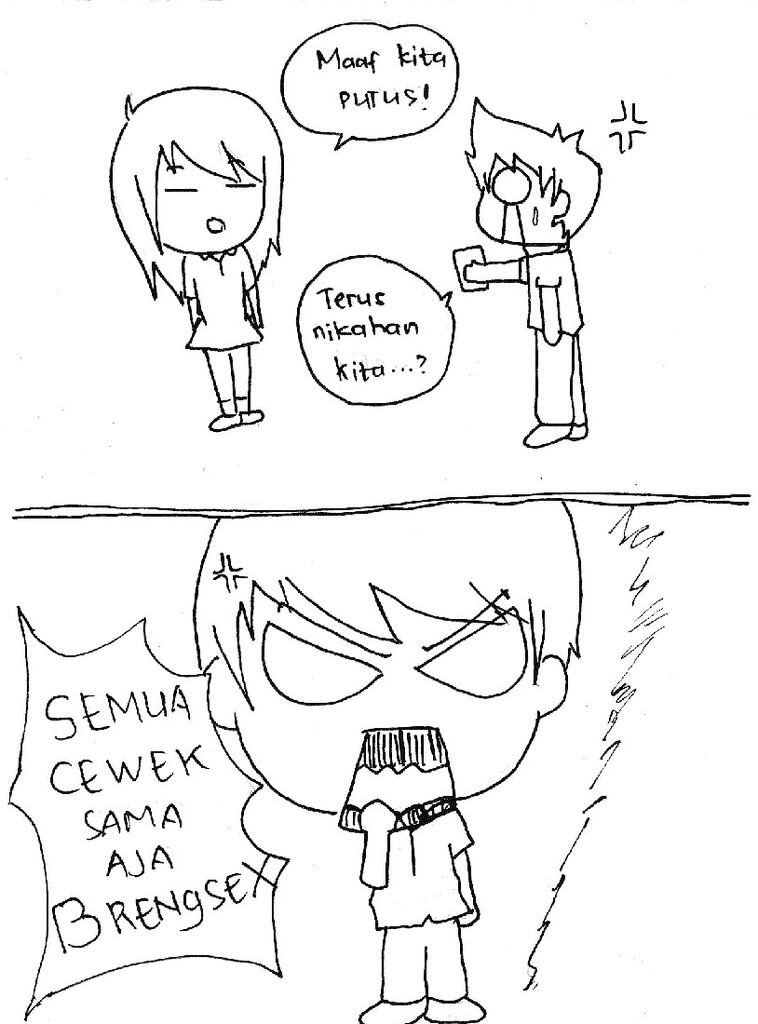
Gara-gara gagal menjalin hubungan dengan satu wanita, maka semua wanita sama saja! kaskus.id 3. Mental Filter: You pick out a single negative detail and dwell on it exclusively, so that your vision of all reality becomes darkened, like the drop of ink that discolors a beaker of water. Example: You receive many positive comments about your presentation to a group of associates at work, but one of them says something mildly critical. You obsess about his reaction for days and ignore all the positive feedback.
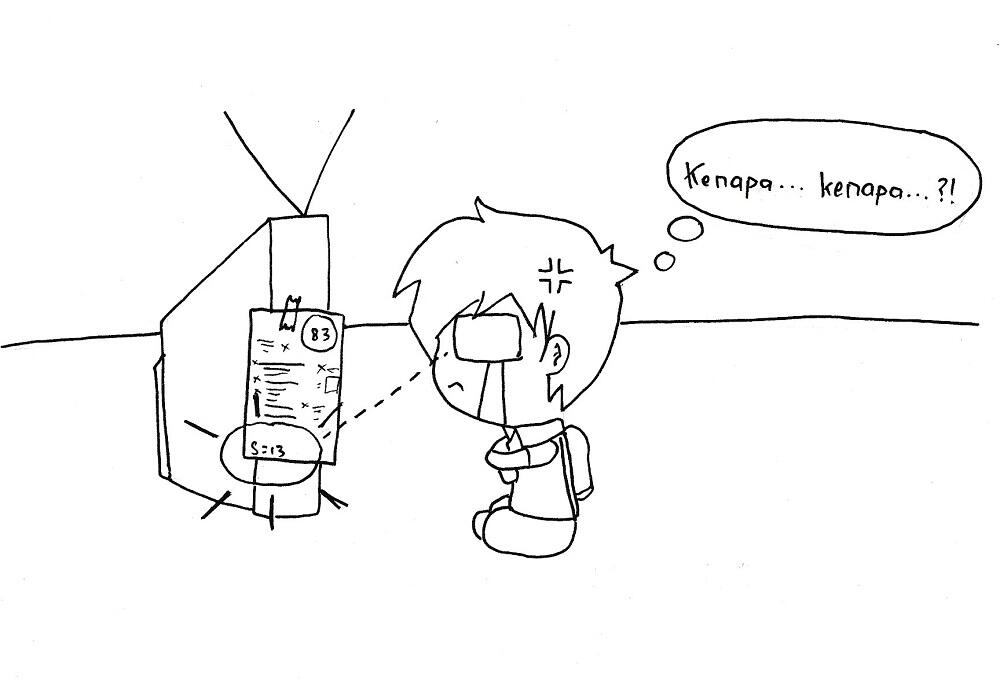
Fokus pada kesalahan kecil dan terus berlarut. kaskus.id 4. Discounting the Positive: You reject positive experiences by insisting they “don’t count.” If you do a good job, you may tell yourself that it wasn’t good enough or that anyone could have done as well. Discounting the positive takes the joy out of life and makes you feel inadequate and unrewarded.
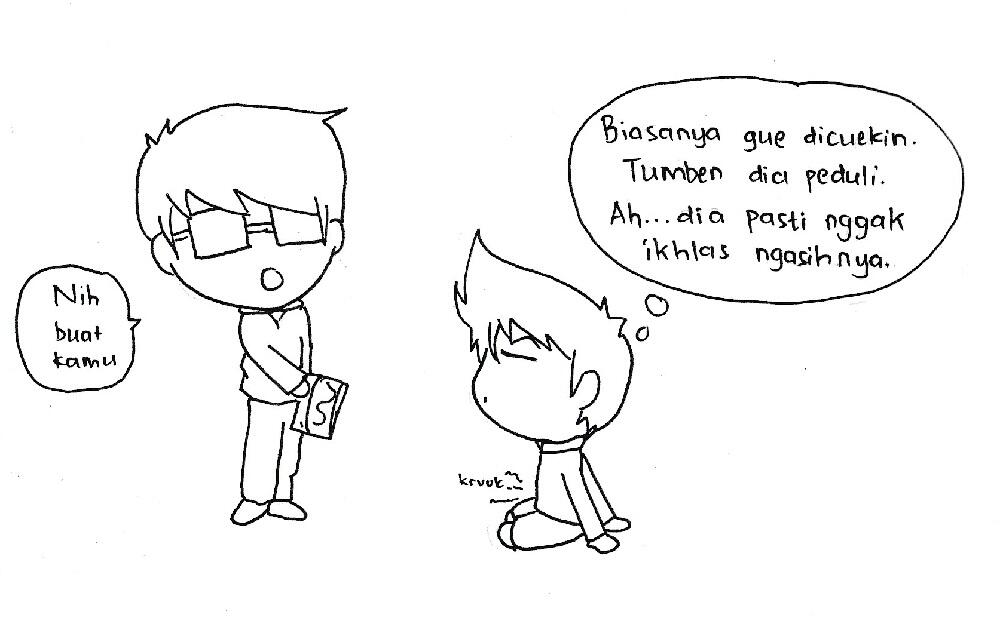
“Ah, dia kan nggak ikhlas ngelakuinnya.” 5. Jumping to Conclusions: You interpret things negatively when there are no facts to support your conclusion.
Mind Reading: Without checking it out, you arbitrarily conclude that someone is reacting negatively to you.
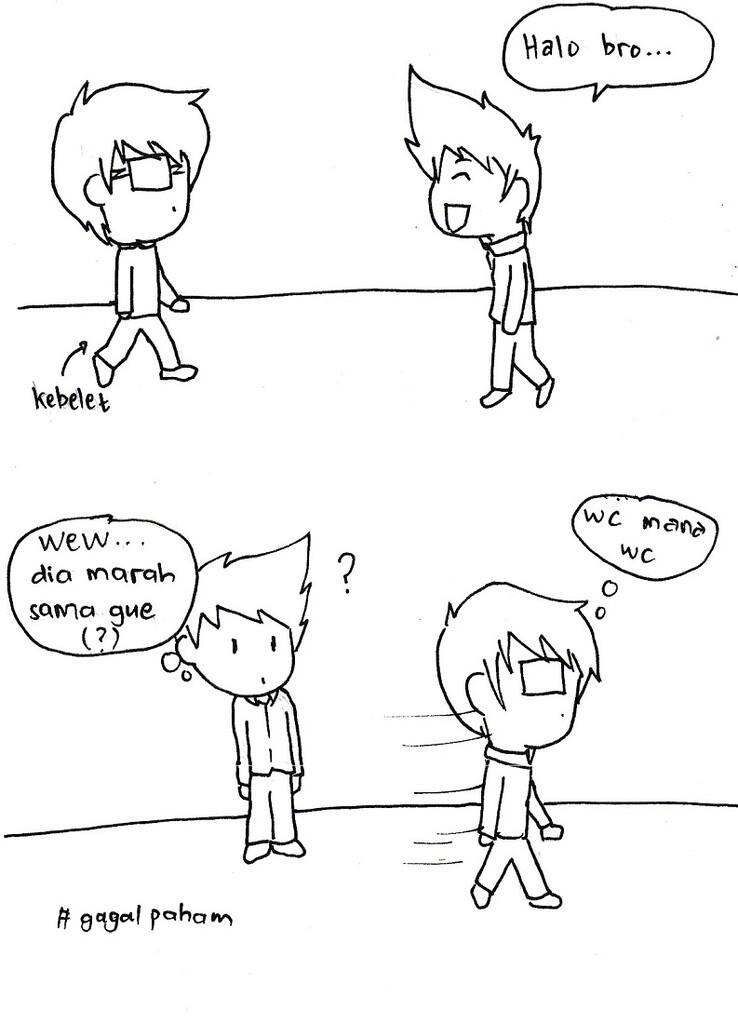
Tapi agan udah mikir yang negatif duluan tanpa punya bukti apapun yang menguatkan kesimpulan agan. kaskus.id Fortune-telling: You predict that things will turn out badly. Before a test you may tell yourself, “I’m really going to blow it. What if I flunk?” If you’re depressed you may tell yourself, “I’ll never get better.”
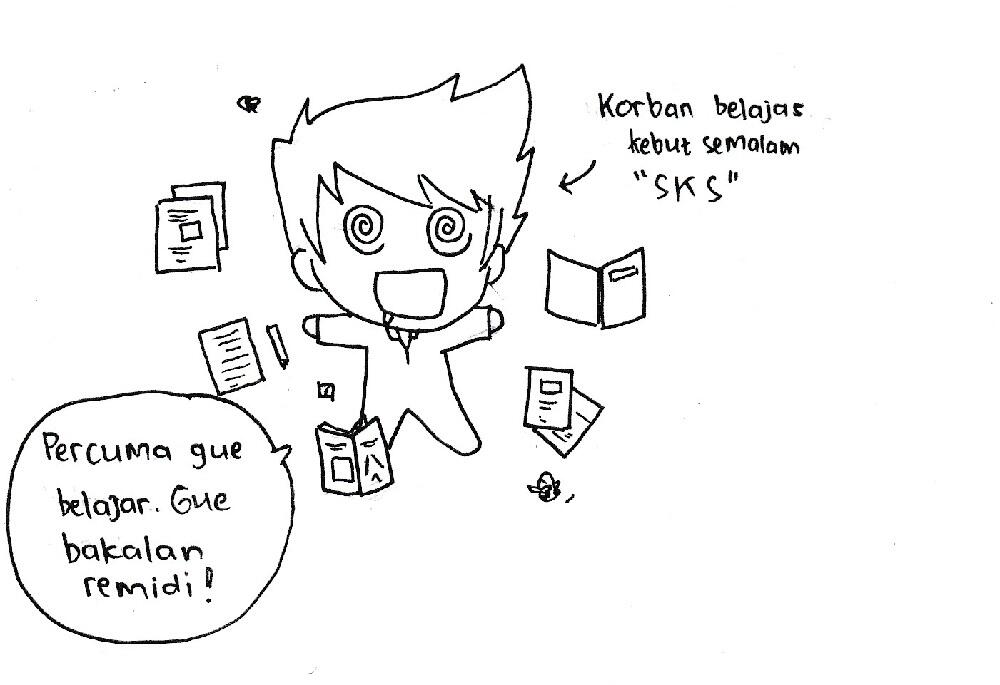
Nggak ada gunanya gue belajar sekarang. Percuma! kaskus.id 6. Magnification: You exaggerate the importance of your problems and shortcomings, or you minimize the importance of your desirable qualities. This is also called the “binocular trick.”
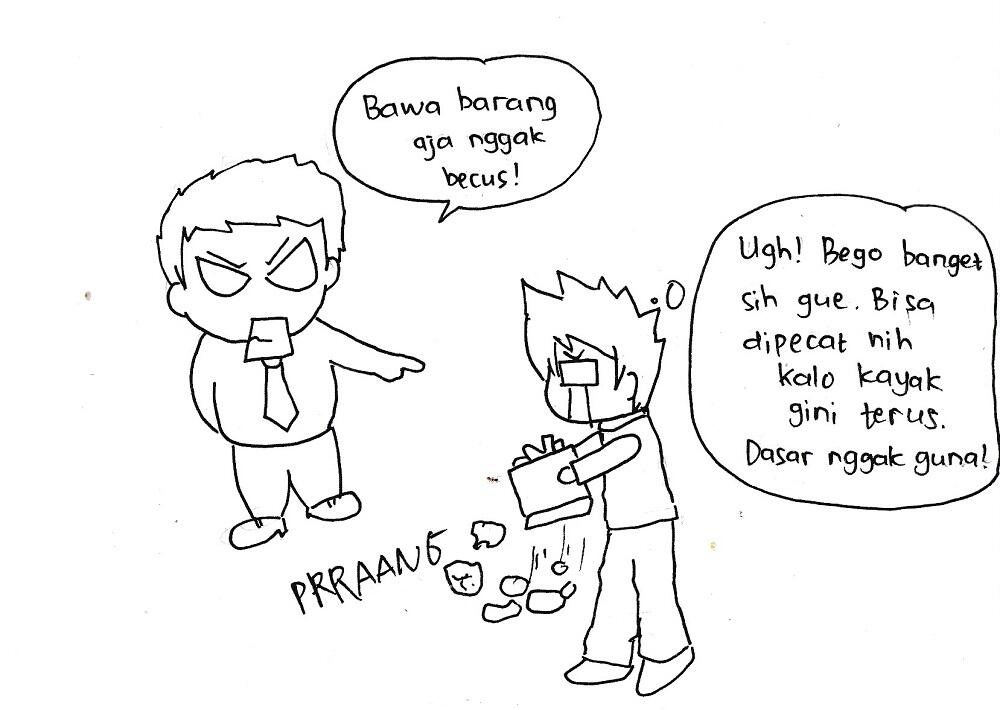
Seakan-akan apa yang atasan agan bilang adalah masalah besar dan aib bagi agan. kaskus.id 7. Emotional Reasoning: You assume that your negative emotions necessarily reflect the way things really are: “I feel terrified about going on airplanes. It must be very dangerous to fly.” Or “I feel guilty. I must be a rotten person.” Or “I feel angry. This proves I’m being treated unfairly.” Or “I feel so inferior. This means I’m a second-rate person.” Or “I feel hopeless. I must really be hopeless.”
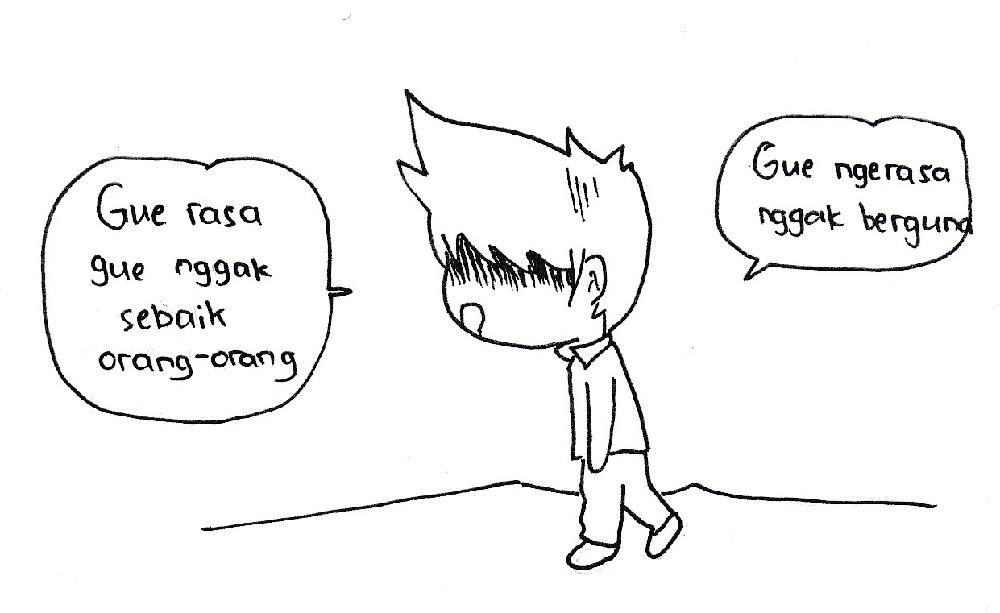
“Gue ngerasa bersalah banget, mungkin gue emang makhluk nggak berguna yang cuma nyusahin orang.” 8. “Should statements”: You tell yourself that things should be the way you hoped or expected them to be. After playing a difficult piece on the piano, a gifted pianist told herself, “I shouldn’t have made so many mistakes.” This made her feel so disgusted that she quit practicing for several days. “Musts,” “oughts” and “have tos” are similar offenders.
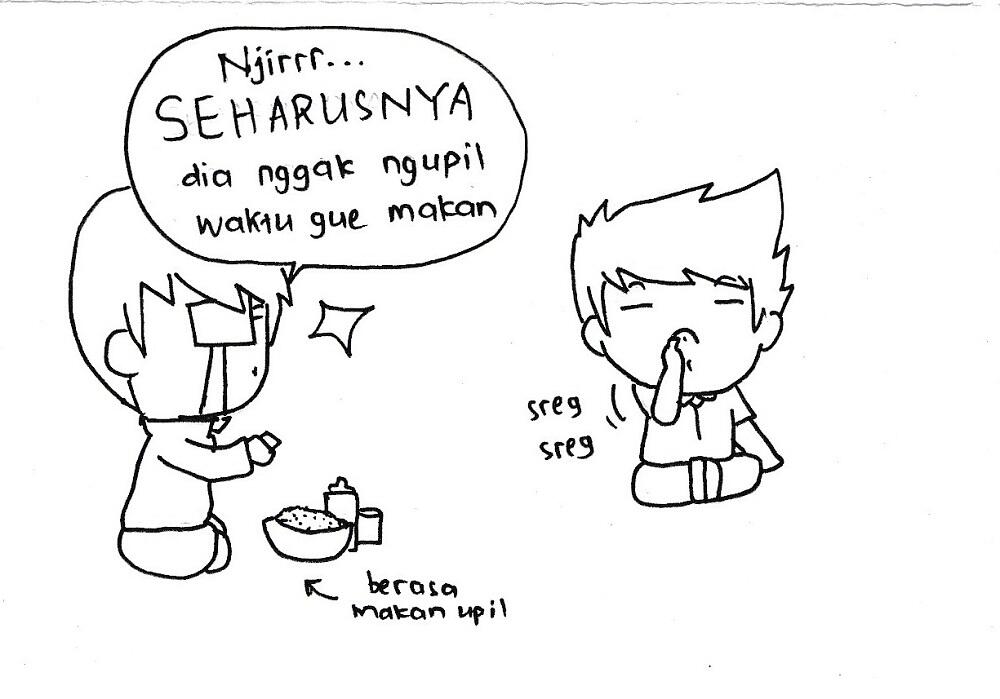
“Seharusnya dia nggak dateng telat!” “Seharussssnyaaaaaa! Lu itu begituuu!” “Should statements” that are directed against yourself lead to guilt and frustration. Should statements that are directed against other people or the world in general lead to anger and frustration: “He shouldn’t be so stubborn and argumentative.”
Many people try to motivate themselves with should and shouldn’ts, as if they were delinquents who had to be punished before they could be expected to do anything. “I shouldn’t eat that doughnut.” This usually doesn’t work because all these should and musts make you feel rebellious and you get the urge to do just the opposite. Dr. Albert Ellis has called this “musterbation.” I call it the “shouldy” approach to life.
9. Labeling: Labeling is an extreme form of all-or-nothing thinking. Instead of saying “I made a mistake,” you attach a negative label to yourself: “I’m a loser.” You might also label yourself “a fool” or “a failure” or “a jerk.” Labeling is quite irrational because you are not the same as what you do. Human beings exist, but “fools,” “losers,” and “jerks” do not.
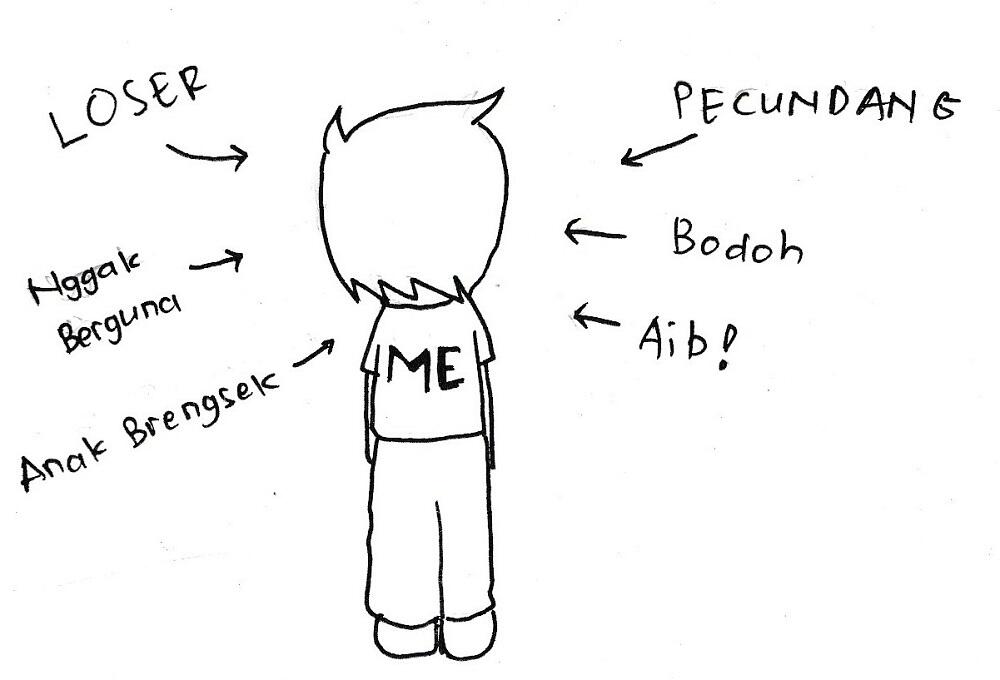
“Gue emang pelajar bego, uhuk…” These labels are just useless abstractions that lead to anger, anxiety, frustration, and low self-esteem.
You may also label others. When someone does something that rubs you the wrong way, you may tell yourself: “He’s an S.O.B.” Then you feel that the problem is with that person’s “character” or “essence” instead of with their thinking or behavior. You see them as totally bad. This makes you feel hostile and hopeless about improving things and leaves little room for constructive communication.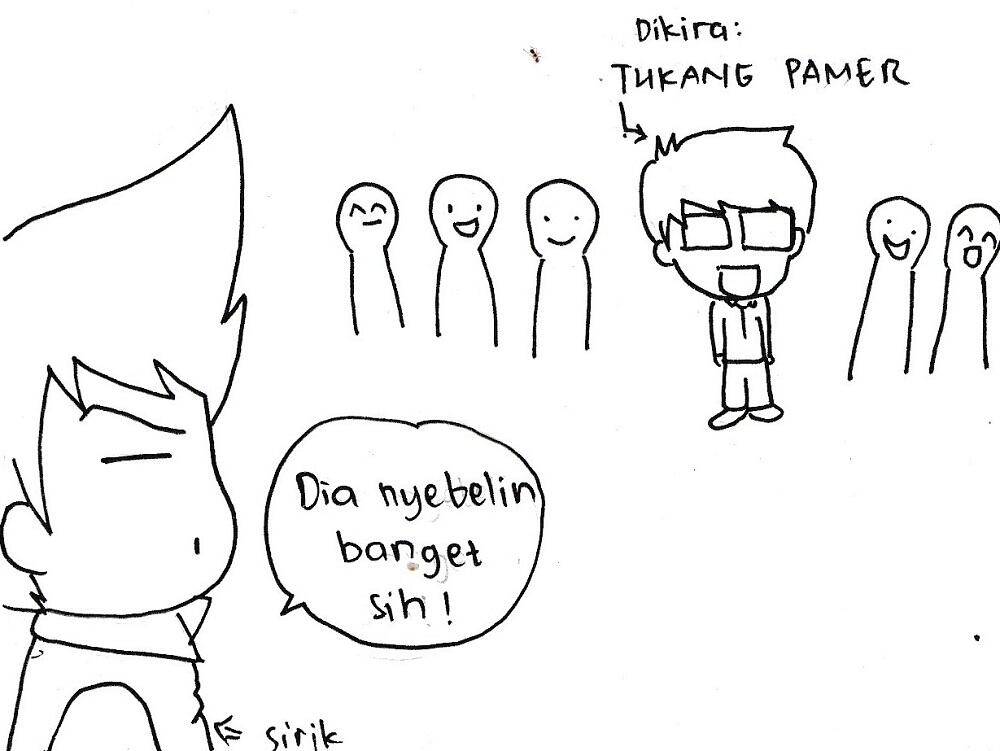
Agan yang mungkin iri, melabeli temen agan sebagai anak orang kaya yang suka pamer (meski faktanya nggak begitu) 10. Personalization and blame: Personalization occurs when you hold yourself personally responsible for an event that isn’t entirely under your control. When a woman received a note that her child was having difficulties at school, she told herself, “This shows what a bad mother I am,” instead of trying to pinpoint the cause of the problem so that she could be helpful to her child. When another woman’s husband beat her, she told herself, “If only I were better in bed, he wouldn’t beat me.” Personalization leads to guilt, shame, and feelings of inadequacy.
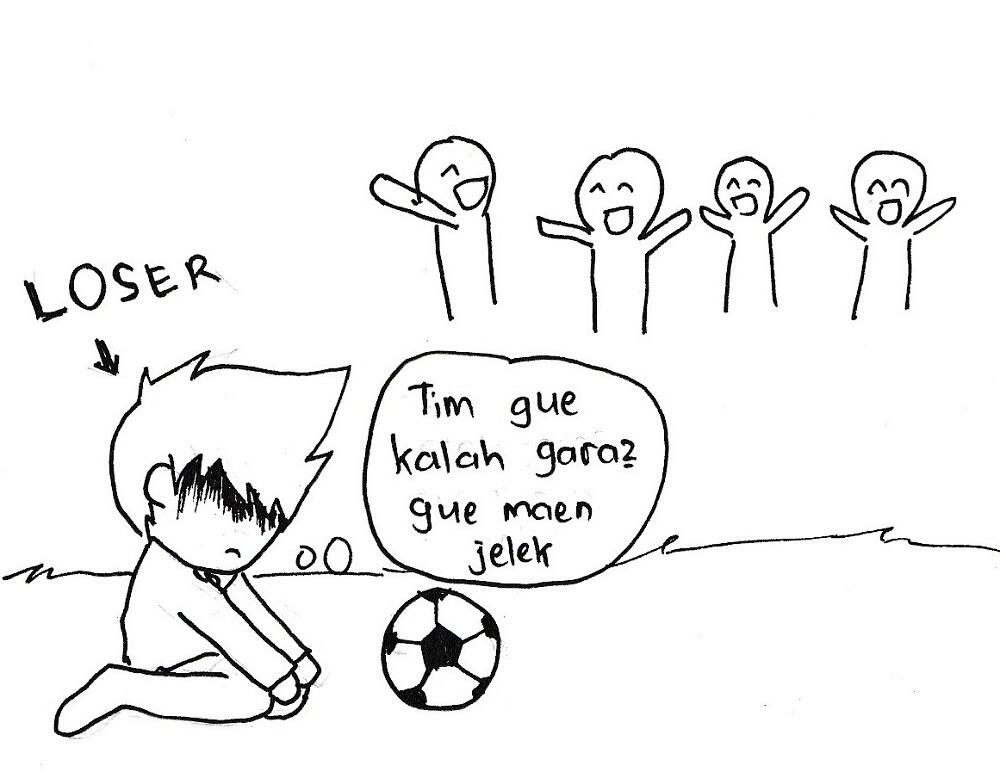
Agan ngerasa jadi kambing hitam kegagalan tim agan menang, tanpa dasar dan alasan apapun. Padahal faktanya agan adalah satu-satunya orang yang maen bagus di pertandingan itu. Some people do the opposite. They blame other people or their circumstances for their problems, and they overlook ways that they might be contributing to the problem: “The reason my marriage is so lousy is because my spouse is totally unreasonable.” Blame usually doesn’t work very well because other people will resent being scapegoated and they will just toss the blame right back in your lap. It’s like the game of hot potato – no one wants to get stuck with it.
Sementara itu, dalam sumber lain Burns juga menyebut ada istilah Double Standard. Istilah ini untuk menyebut orang lain menilai dirinya sendiri dengan aturan keras (perfeksionis), tetapi aturan keras itu tidak akan pernah berlaku untuk orang lain. Atau bisa juga sebaliknya.
Baca juga:
[1] Mengatasi Masalah Distorsi Kognitif Pada Klien Usia Remaja Dengan Metode Cognitive Restructring Form. Rini Rizkiawati, Dessy Hasanah Siti Asiah
[2] Burns, D. D. (1999). Feeling good: The new mood therapy. Avon Books, New York.
[3] Rosenfield, Bradley Michael, “Relationship Between Cognitive Distortions and Psychological Disorders Across Diagnostic Axes” (2004). PCOM Psychology Dissertations. Paper 119.




